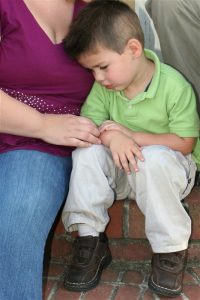When a Child Refuses to See One Parent Following a Divorce: Intensive Intervention Models
I often receive calls from parents or family law attorneys asking that I see a child and a parent for “reunification,” “reconciliation,” or “facilitative” therapy. The caller usually describes a situation in which, following a divorce, a child has refused to see one parent and expresses a clear preference for the other. The “rejected” or “non-preferred” parent has not been able to see their child for some time and is desperate to reconnect.
In my experience, these are among the most challenging and complex cases. Unfortunately, by the time I receive the case, the time apart has solidified the estrangement between the child and parent and the child is very resistant to engage in reunification therapy. The likelihood of repairing the relationship between the child and rejected parent decreases if the child is of older age (pre-teen to late adolescence), there was a strained relationship present before the divorce and if the preferred parent does not support the reunification. If the reunification therapy does not yield positive results, it is important to consider other options. One such option is participation in an intensive intervention experience.
In order to better understand this intensive intervention model, I applied and was fortunately accepted to participate in the Overcoming Barriers Family Camp as an immersion trainee last summer. Multiple whole families participate in a five-day intervention which includes psycho-education, therapy groups for the children, preferred parents, non-preferred parents, co-parenting and family therapy. In addition to therapy, the camp is planned with such skill and forethought, that even meals, sleeping arrangements and interactions in the “milieu” where the children can play, engage in sports and craft activities while parents are present are all therapeutic. Each child and parent are also assigned their own camp staff member or “Green Shirt.” Green Shirts are a well-trained, diverse group of men and women who provide support and supervision so that all interactions between family members during the camp experience are appropriate and productive. The camp experience, in general, is designed to facilitate healthy relationships between the children and both of their parents as well as productive co-parenting relationships. At the conclusion of camp, the families assist the professionals in developing after-care plans to sustain the positive changes achieved during the camp experience. Such intensive intervention programs are also offered as weekend, one-family retreats.
Although such programs can involve a significant cost, many families who attend the camp have already spent exponentially higher amounts on ongoing litigation and unsuccessful outpatient therapies. In the spirit of the collaborative divorce model which strives to reduce stress, financial hardship and to avoid ongoing conflict and litigation; this intensive experience provided a sense of hope for all involved by presenting an acceptance, child-centered and future focused mindset.
For more information regarding the Overcoming Barriers Program or to inquire about how a collaborative divorce can benefit your family during or after divorce, please contact the professionals at Family Divorce Solutions of San Fernando Valley. Reach out to us today to see how we can help!

